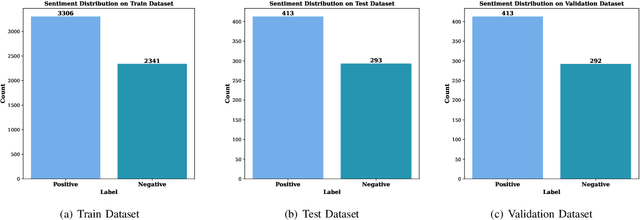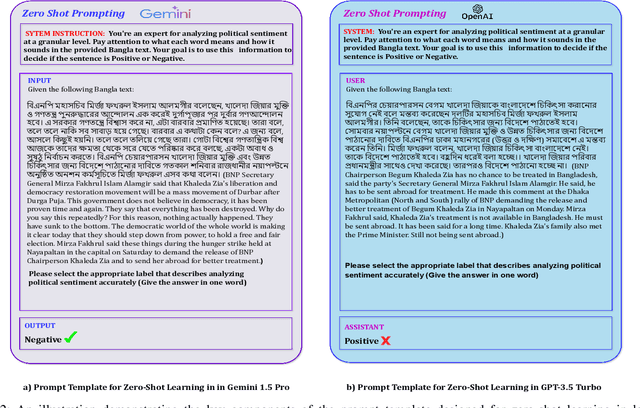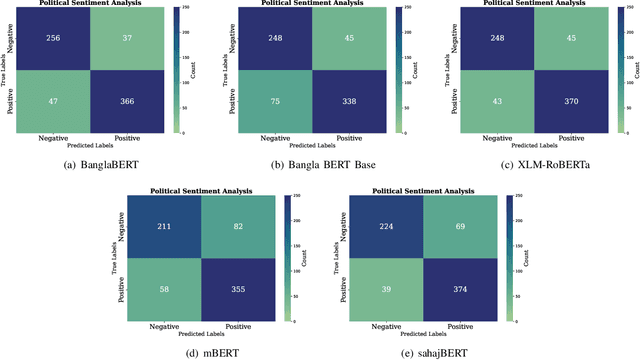Md Mahabubul Alam Abir
Motamot: A Dataset for Revealing the Supremacy of Large Language Models over Transformer Models in Bengali Political Sentiment Analysis
Jul 28, 2024



Abstract:Sentiment analysis is the process of identifying and categorizing people's emotions or opinions regarding various topics. Analyzing political sentiment is critical for understanding the complexities of public opinion processes, especially during election seasons. It gives significant information on voter preferences, attitudes, and current trends. In this study, we investigate political sentiment analysis during Bangladeshi elections, specifically examining how effectively Pre-trained Language Models (PLMs) and Large Language Models (LLMs) capture complex sentiment characteristics. Our study centers on the creation of the "Motamot" dataset, comprising 7,058 instances annotated with positive and negative sentiments, sourced from diverse online newspaper portals, forming a comprehensive resource for political sentiment analysis. We meticulously evaluate the performance of various PLMs including BanglaBERT, Bangla BERT Base, XLM-RoBERTa, mBERT, and sahajBERT, alongside LLMs such as Gemini 1.5 Pro and GPT 3.5 Turbo. Moreover, we explore zero-shot and few-shot learning strategies to enhance our understanding of political sentiment analysis methodologies. Our findings underscore BanglaBERT's commendable accuracy of 88.10% among PLMs. However, the exploration into LLMs reveals even more promising results. Through the adept application of Few-Shot learning techniques, Gemini 1.5 Pro achieves an impressive accuracy of 96.33%, surpassing the remarkable performance of GPT 3.5 Turbo, which stands at 94%. This underscores Gemini 1.5 Pro's status as the superior performer in this comparison.
 Add to Chrome
Add to Chrome Add to Firefox
Add to Firefox Add to Edge
Add to Edge